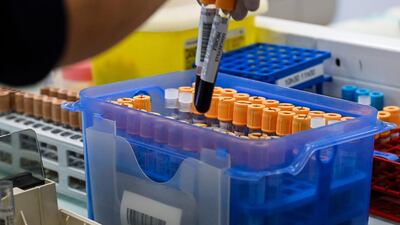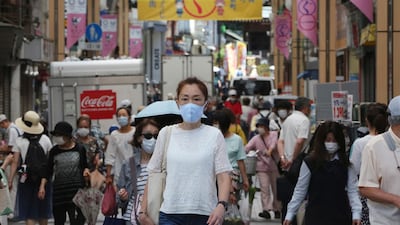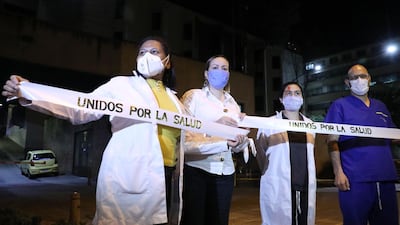Having a particular blood type may mean you are less susceptible to the novel coronavirus, a new study suggests.
Researchers at 23andMe – a genetic testing company – found that people with type O blood were up to 18 per cent less likely to test positive for Covid-19, the disease caused by the virus, and 26 per sent less likely to contract the virus.
It is the latest study to suggest that blood type may play a role in the severity of the disease, although it is yet to be peer reviewed. Both said their research indicated a link between the genes that determined blood type and the virus.
More than 750,000 participants, including 10,000 who reported having Covid-19, took part in the study. Around 1.3 per cent with type O blood tested positive, while 1.4 percent of those with type A blood and 1.5 percent of people with type B or AB blood had the disease.
People with O-type blood who had been exposed to the virus, such as frontline health workers, were between 13 and 26 per cent less likely to test positive.
“Among respondents to the 23andMe Covid-19 survey, the per cent of respondents reporting a positive test for Covid-19 is lowest for people who are O blood type. The per cent of respondents reporting a positive test for Covid-19 was highest among those with the AB blood type,” 23andMe said in a post online.
“In 23andMe’s data we found that differences by self-reported rhesus factor (blood type + or -) were not significant, nor was the interaction between blood group and rhesus factor in statistical models predicting being a case, or being a hospitalised case."
The results from the study were controlled for age, gender, body mass index and ethnicity among other factors. The study is ongoing, and researchers hope to continue to understand the virus better.
A study in China found that people with type A blood had a higher risk of contracting Covid-19 than other blood groups, while type O had a lower risk.
A group of Italian and Spanish researchers found a higher risk of illness among A-positive blood type people, and Columbia University Irving Medical Centre had similar findings – that people with A-positive and A-negative blood were 33 per cent more likely to contract coronavirus.



















